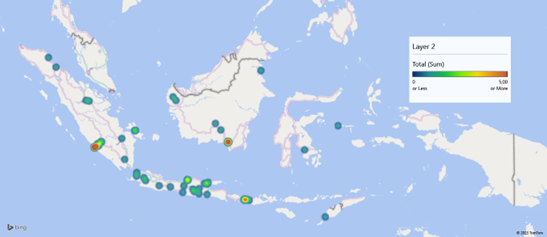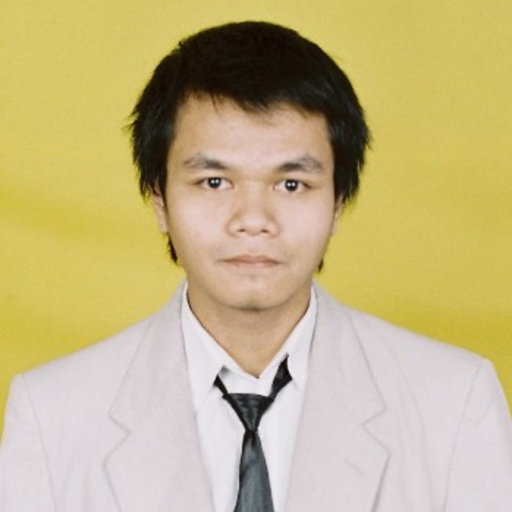Low level of local wisdom-based biology education research: What should we do?
DOI:
https://doi.org/10.22219/jpbi.v10i3.36108Keywords:
ethnoscience, local-based learning, local wisdomAbstract
Research on local wisdom-based biology education is increasingly important in efforts to enrich the national curriculum and preserve Indonesia's cultural heritage. However, systematic studies on trends and varieties of research in this field are still limited. This study aims to analyze trends in local wisdom-based biology education research in Indonesia using data from SINTA 1 to 3 accredited journals during the period 2013-2022. Using a systematic search method, 77 articles related to local wisdom from 22 journals were identified. The analysis shows that although the number of articles has increased from year to year, the percentage of publications focusing on local wisdom is still low. This study also identified a variety of research designs, development models, measured data, and diverse research areas. These findings highlight the need for increased attention to local wisdom-based research in biology education and the development of more standardized instruments to support the sustainability and integration of local wisdom in education. These results are expected to be a reference for researchers and educators in developing a curriculum that is contextual and relevant to local wisdom in Indonesia.
Downloads
References
Adams, N. E. (2015). Bloom’s taxonomy of cognitive learning objectives. Journal of Medical Library Association, 103(3), 152–153. https://doi.org/10.3163/1536-5050.103.3.010
Akinwumi, I. O. (2023). Biology education: A panacea to global environmental challenges. European Journal of Training and Development Studies, 10(2), 44–56. https://doi.org/10.37745/ejtds.2014/vol10n24456
Anwar, T., Qureshi, H., Shahzadi, S., Siddiqi, E. H., Ali, H. M., Abdelhamid, M. M. A., & Nazim, M. (2024). Exploring the benefits of wild plants in dietary nutrition: investigating perspectives, choices, health impacts and sustainable practices. BMC Complementary Medicine and Therapies, 24(1), 86. https://doi.org/10.1186/s12906-024-04379-4
Borg, W. R., & Gall, M. D. (1983). Educational research an introduction. Longman. https://books.google.co.id/books/about/Educational_Research.html?hl=id&id=KcE0AAAAMAAJ&redir_esc=y
Branch, R. M. (2009). Instructional design: The ADDIE approach. Springer. https://www.springer.com/gp/book/9780387095059
Congretel, M., & Pinton, F. (2020). Local knowledge, know‐how and knowledge mobilized in a globalized world: A new approach of indigenous local ecological knowledge. People and Nature, 2(3), 527–543. https://doi.org/10.1002/pan3.10142
Dean, M. (2024). Exploring ethnobotanical knowledge: Qualitative insights into the therapeutic potential of medicinal plants. Golden Ratio of Data in Summary, 4(2), 06–18. https://doi.org/10.52970/grdis.v4i2.491
Dwianto, A., Wilujeng, I., Prasetyo, Z. K., & Suryadarma, I. G. P. (2017). The development of science domain based learning media which is integrated with local potention to improve science process skill and scientific attitude. Jurnal Pendidikan IPA Indonesia, 6(1). https://doi.org/10.15294/jpii.v6i1.7205
Dwyer, C. P., Hogan, M. J., & Stewart, I. (2014). An integrated critical thinking framework for the 21st century. Thinking Skills and Creativity, 12, 43–52. https://doi.org/10.1016/j.tsc.2013.12.004
Erman, E., & Wakhidah, N. (2024). Connecting students to local wisdom to learn science for sustainable development goals: A conceptual framework. KnE Social Sciences. https://doi.org/10.18502/kss.v9i13.16076
Ernawati, E., & Sari, T. M. (2022). Implementation of free inquiry approach based on blended learning on creative thinking and student collaboration skills. JPBI (Jurnal Pendidikan Biologi Indonesia), 8(3), 216–225. https://doi.org/10.22219/jpbi.v8i3.22254
Fauzi, A., & Pradipta, I. W. (2018). Research methods and data analysis techniques in education articles published by Indonesian biology educational journals. JPBI (Jurnal Pendidikan Biologi Indonesia), 4(2), 123–134. https://doi.org/10.22219/jpbi.v4i2.5889
Fitriani, H., Asy’ari, M., Zubaidah, S., & Mahanal, S. (2019). Exploring the prospective teachers’ critical thinking and critical analysis skills. Jurnal Pendidikan IPA Indonesia, 8(3). https://doi.org/10.15294/jpii.v8i3.19434
Flores-Silva, A., Cuevas-Guzmán, R., & Baptista, G. (2024). Ethnobotany as a tool to teach science in rural schools: A case study in Western Mexico. Journal of Ethnobiology. https://doi.org/10.1177/02780771241261233
Guslinda, G., Kurniaman, O., Firdaus, L. N., & Hadriana, H. (2024). Developing local wisdom-based teaching materials on “family addressing terms" for elementary school students: validation analysis using the 4D Model. Multidisciplinary Journal of School Education, 13(1 (25)). https://doi.org/10.35765/mjse.2024.1325.15
Handayani, R. D., Wilujeng, I., & Prasetyo, Z. K. (2018). Elaborating indigenous knowledge in the science curriculum for the cultural sustainability. Journal of Teacher Education for Sustainability, 20(2), 74–88. https://doi.org/10.2478/jtes-2018-0016
Hikmawati, H., Suastra, I. W., Suma, K., & Sudiatmika, A. A. I. A. R. (2024). Online lectures with local wisdom context: Efforts to develop students’ higher-order thinking skills. International Journal of Evaluation and Research in Education (IJERE), 13(2), 943. https://doi.org/10.11591/ijere.v13i2.25744
Hiong, L. C., & Osman, K. (2013). A conceptual framework for the integration of 21st century skills in biology education. Research Journal of Applied Sciences, Engineering and Technology, 6(16), 2976–2983. https://doi.org/10.19026/rjaset.6.3681
Hoskinson, A.-M., Caballero, M. D., & Knight, J. K. (2013). How can we improve problem solving in undergraduate biology? Applying lessons from 30 years of physics education research. CBE—Life Sciences Education, 12(2), 153–161. https://doi.org/10.1187/cbe.12-09-0149
Izzah, N., Suad, S., Kaliaskarova, A., & Santoso, S. (2022). Development of blended learning model based on jepara’s local wisdom to increase student’s concept understanding. Iasaýı Ýnıversıtetіnіń Habarshysy, 124(2), 119–130. https://doi.org/10.47526/2022-2/2664-0686.10
Jacque, B., Koch-Weser, S., Faux, R., & Meiri, K. (2016). Addressing health literacy challenges with a cutting-edge infectious disease curriculum for the high school biology classroom. Health Education & Behavior, 43(1), 43–53. https://doi.org/10.1177/1090198115596163
Kamakaula, Y., Amruddin, A., Demmanggasa, Y., Saprudin, S., & Nugroho, R. J. (2024). The role of local knowledge in natural resources conservation: An environmental anthropological perspective in traditional agriculture. Global International Journal of Innovative Research, 1(2), 97–106. https://doi.org/10.59613/global.v1i2.13
Knapp, T. R. (2016). Why is the one-group pretest–posttest design still used? Clinical Nursing Research, 25(5), 467–472. https://doi.org/10.1177/1054773816666280
Kwangmuang, P., Jarutkamolpong, S., Sangboonraung, W., & Daungtod, S. (2021). The development of learning innovation to enhance higher order thinking skills for students in Thailand junior high schools. Heliyon, 7(6), e07309. https://doi.org/10.1016/j.heliyon.2021.e07309
Lemma, M., Doyle, R., Alemayehu, G., Mekonnen, M., Kumbe, A., & Wieland, B. (2022). Using community conversations to explore animal welfare perceptions and practices of rural households in Ethiopia. Frontiers in Veterinary Science, 9. https://doi.org/10.3389/fvets.2022.980192
Lusianawati, H., Mokodenseho, S., Saputra, D. G., & Pujowati, Y. (2023). Tracking the impact of local wisdom in sustainable cultural heritage conservation: A bibliometric approach. West Science Social and Humanities Studies, 1(03), 115–126. https://doi.org/10.58812/wsshs.v1i03.251
Marlina, M., Mkumbachi, R. L., Mane, A., & Daud, L. R. (2023). Environmental care character education based on local wisdom for marine resource management. Jambura Geo Education Journal, 4(2), 199–207. https://doi.org/10.34312/jgej.v4i2.21920
Matuk, F. A., Behagel, J. H., Simas, F. N. B., Do Amaral, E. F., Haverroth, M., & Turnhout, E. (2020). Including diverse knowledges and worldviews in environmental assessment and planning: the Brazilian Amazon Kaxinawá Nova Olinda Indigenous Land case. Ecosystems and People, 16(1), 95–113. https://doi.org/10.1080/26395916.2020.1722752
Ngamskulrungroj, P. (2020). Active learning classes in a preclinical year may help improving some soft skills of medical students. Siriraj Medical Journal, 72(5), 415–423. https://doi.org/10.33192/Smj.2020.56
Patel, D. S., & Lepcha, A. P. (2023). Organic farming and sustainable agriculture harmonizing ecological conservation: the lepcha indigenous perspective. Dogo Rangsang Research Journal, 13(02), 178–184. https://doi.org/10.36893/DRSR.2023.V13I03N05.178-184
Radcliffe, C., Raman, A., & Parissi, C. (2021). Entwining indigenous knowledge and science knowledge for sustainable agricultural extension: exploring the strengths and challenges. The Journal of Agricultural Education and Extension, 27(2), 133–151. https://doi.org/10.1080/1389224X.2020.1828112
Rahman, M. M. (2019). 21st century skill “problem solving”: Defining the concept. Asian Journal of Interdisciplinary Research, 2(1), 64–74. https://doi.org/10.34256/ajir1917
Ramdiah, S., Abidinsyah, A., Royani, M., & Husamah, H. (2019). Understanding, planning, and implementation of HOTS by senior high school biology teachers in Banjarmasin-Indonesia. International Journal of Instruction, 12(1), 425–440. https://doi.org/10.29333/iji.2019.12128a
Rushton, E. A. C., & Walshe, N. (2022). Climate change, sustainability and the environment: The continued importance of biological education. Journal of Biological Education, 56(3), 243–244. https://doi.org/10.1080/00219266.2022.2116843
Saro, J. M., Guzman, M. T., Ochavez, E. E., & Dano, C. O. (2023). Ethno-learning resources in teaching biology for promoting sustainability education: A district-wide science problem. American Journal of Education and Technology, 2(2), 1–9. https://doi.org/10.54536/ajet.v2i2.1322
Setiawan, B., Innatesari, D. K., Sabtiawan, W. B., & Sudarmin, S. (2017). The development of local wisdom-based natural science module to improve science literation of students. Jurnal Pendidikan IPA Indonesia, 6(1), 49–54. https://doi.org/10.15294/jpii.v6i1.9595
Shen, G. (2020). Campbell biology (edited by Lisa Urry, Michael Cain, Steven Wasserman, Peter Minorsky and Jane Reece). Journal of Biological Research-Thessaloniki, 27(1), 19. https://doi.org/10.1186/s40709-020-00127-0
Sirait, S. H. K., Sremere, F. M., Nunaki, J. H., & Tuwo, M. (2024). Development of plant diversity flipbooks integrated local wisdom. Inornatus: Biology Education Journal, 4(1), 27–35. https://doi.org/10.30862/inornatus.v4i1.576
Sugiyarti, R., & Sukasih, S. (2024). Development of local wisdom-based animated videos to improve procedure text writing skills. Journal of Disruptive Learning Innovation (JODLI), 5(2), 81. https://doi.org/10.17977/um072v5i22024p81-102
Sugiyono, S. (2021). Metode penelitian kuantitatif, kualitatif, dan R&D. Bandung: Alfabeta. https://inlislite.uin-suska.ac.id/opac/detail-opac?id=26594
Šūmane, S., Kunda, I., Knickel, K., Strauss, A., Tisenkopfs, T., Rios, I. des I., Rivera, M., Chebach, T., & Ashkenazy, A. (2018). Local and farmers’ knowledge matters! How integrating informal and formal knowledge enhances sustainable and resilient agriculture. Journal of Rural Studies, 59, 232–241. https://doi.org/10.1016/j.jrurstud.2017.01.020
Susetyarini, E., & Fauzi, A. (2020). Trend of critical thinking skill researches in biology education journals across Indonesia: From research design to data analysis. International Journal of Instruction, 13(1), 535–550. https://doi.org/10.29333/iji.2020.13135a
Thiagarajan, S., Semmel, D, S., & Semmel, M, I. (1974). Instructional development for training teachers of exceptional children: A sourcebook. Indiana University. https://files.eric.ed.gov/fulltext/ED090725.pdf
Verawati, N. N. S. P., & Ramdani, A. (2024). Research trend of local wisdom issues based on scopus journal database: A bibliometric study. International Journal of Contextual Science Education, 1(1), 11–21. https://doi.org/10.29303/ijcse.v1i1.551

Downloads
Published
Issue
Section
License

This work is licensed under a Creative Commons Attribution-ShareAlike 4.0 International License.
Authors who publish with JPBI (Jurnal Pendidikan Biologi Indonesia) agree to the following terms:
- For all articles published in JPBI, copyright is retained by the authors. Authors give permission to the publisher to announce the work with conditions. When the manuscript is accepted for publication, the authors agree to automatic transfer of the publishing right to the publisher.
- Authors retain copyright and grant the journal right of first publication with the work simultaneously licensed under a Creative Commons Attribution-ShareAlike 4.0 International License that allows others to share the work with an acknowledgment of the work's authorship and initial publication in this journal.
- Authors are able to enter into separate, additional contractual arrangements for the non-exclusive distribution of the journal's published version of the work (e.g., post it to an institutional repository or publish it in a book), with an acknowledgment of its initial publication in this journal.
- Authors are permitted and encouraged to post their work online (e.g., in institutional repositories or on their website) prior to and during the submission process, as it can lead to productive exchanges, as well as earlier and greater citation of published work (See The Effect of Open Access).

This work is licensed under a Creative Commons Attribution-ShareAlike 4.0 International License.


















